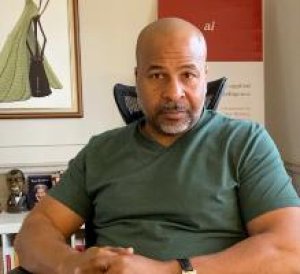A recent Globe and Mail headline confirmed what many of us predicted back in 2022: Bay Street's enthusiasm for DEI is dying. Five years after George Floyd's murder sparked the Black North Initiative—a pledge that got 500 Canadian companies to commit to putting more Black people in boardrooms and executive suites—just 16% of those companies even bothered responding to this year's survey.
The silence is deafening. And predictable.
Black North Initiative founder Wes Hall responded on LinkedIn, acknowledging the fading urgency but pointing to Pledge 2.0 and claiming that 90% of the original signatories have recommitted. He's right about one thing: "Leadership is proven when it is difficult, when the spotlight has dimmed."
However, what that statement inadvertently reveals is that when change depends on other people's leadership and moral commitment, it's not sustainable change. It's charity that evaporates when it's inconvenient.
The Math Never Added Up
Here's the hard truth: you can't solve an economic problem with a moral argument. The universe doesn't run on good intentions—it runs on power. And power doesn't trickle down from corporate pledges and DEI committees. It builds up from the ground through one thing: economics.
Think about it. Every thriving community in history understood this. You don't ask for a seat at the table—you build your own table, then decide who sits there. That's not cynicism. That's reality.
When Pledges Replace Power
The BNI CEO Pledge aimed to boost Black representation in management and board positions by 3.5%.
According to a 2025 study from The Diversity Institute: The BlackNorth Initiative (BNI) in Canada established a target of at least 3.5% Black representation in executive and board roles. Data from the S&P/TSX companies analyzed by the Diversity Institute indicate tangible improvements toward this goal. In 2020, Black board representation across 222 companies stood at only 0.9%, but by 2022, it had more than doubled to 2.1%. Notably, among TSX-listed companies that committed to the BNI voluntary pledge, Black board representation reached 3.3%, twice the proportion observed in non-BNI companies (1.6%).
That all sounds great, but here's what actually happens when you rely on top-down solutions to bottom-up problems: tokenism becomes progress. A few appointments become proof of systemic change. And when those appointments happen, they're questioned—dismissed as "Didn't Earn It" rather than recognized as excellence finally getting its due.
That's the trap of the pledge model. It positions Black achievement as something granted rather than something built. It makes our success dependent on corporate benevolence instead of economic power.
"The enthusiasm employers once had for diversity projects has waned considerably," the Globe reports. Translation: When social pressure fades, so does commitment. That's what happens when you build on moral arguments instead of economic necessity.
The Entrepreneurship Gap Nobody Wants to Talk About
Here's what we need to face: No nonprofit organization has ever closed a wealth gap. None. Show me the historical evidence, and I'll wait.
But you know what does have evidence? Entrepreneurship culture. Equity ownership. Community investment. These are the engines of generational wealth in every community that's built it.
Yes, DEI is supposed to be about "removing the barriers that keep talented people from even being able to reach the bar in the first place." That's a compelling framing. But barriers don't disappear because corporations pledge to remove them. Barriers disappear when you have the economic power to go around them, over them, or build your own damn system.
Black communities lack a robust culture of investing in our own entrepreneurs. Too many of us still see salaried positions—even executive ones—as the pinnacle of success, when salaries don't build wealth. Equity does. Once you create wealth, you control who gets hired, who gets board positions, and who gets funded. That's power.
Begging corporations to hire us isn't equity. Government grants aren't equity. Pledge renewals aren't equity.
Equity is ownership. Period.
What Actually Works
Want to know how communities build power? They invest in each other. They create businesses. They accumulate equity. They leverage that equity into more power. Rinse and repeat for generations.
The Asian, Jewish, and Italian communities in North America didn't close their wealth gaps through corporate diversity pledges. They did it through ethnic banking systems, community investment networks, and a relentless culture of entrepreneurship. They built parallel economic systems when the mainstream wouldn't let them in.
That's not ancient history. That's a playbook we refuse to follow.
This is our responsibility. Prosperity isn't a human right you can petition for—it's something you take through strategic action, economic solidarity, and relentless execution.
We can't keep falling for feel-good initiatives that don't address root causes. We can't keep betting on corporate benevolence or moral awakenings. Self-interest rules the universe, and nobody—nobody—is going to voluntarily share their privilege with you just because you signed them up for a pledge.
That's not pessimism. That's the first law of survival.
The Path Forward
The legacy of racism endures—that's reality. But how we respond determines our outcome. Complaining doesn't build wealth. Begging doesn't generate power. Waiting for corporate Canada to "hold the line on commitments" guarantees we'll keep having the same conversations in another five years.
We need to organize. Invest in our own. Build businesses. Create equity. Leverage that equity into more power. Stop asking others to do what only we can do for ourselves.
This isn't about rage or resentment. It's about cold, hard strategy. Other communities figured this out generations ago. We can too.
But first, we need to accept that no one is coming to save us. Not corporations. Not governments. Not well-meaning initiatives with impressive pledge numbers and renewal campaigns.
Yes, "the fight for equity is not over." But we need to redefine what that fight looks like. It's not just about getting more Black executives appointed to boards—though that's not nothing. It's about building Black-owned enterprises that create those boards. It's about community investment funds that make Black entrepreneurs bankable. It's about generational wealth transfer that makes our children economically antifragile.
The universe doesn't care about our struggles, and it definitely doesn't owe us fairness. Time doesn't wait. Your window for building generational wealth is measured in decades, not centuries.
The question isn't whether corporate Canada will give us a seat at the table.
The question is: when do we stop asking and start building?

 By
By 






